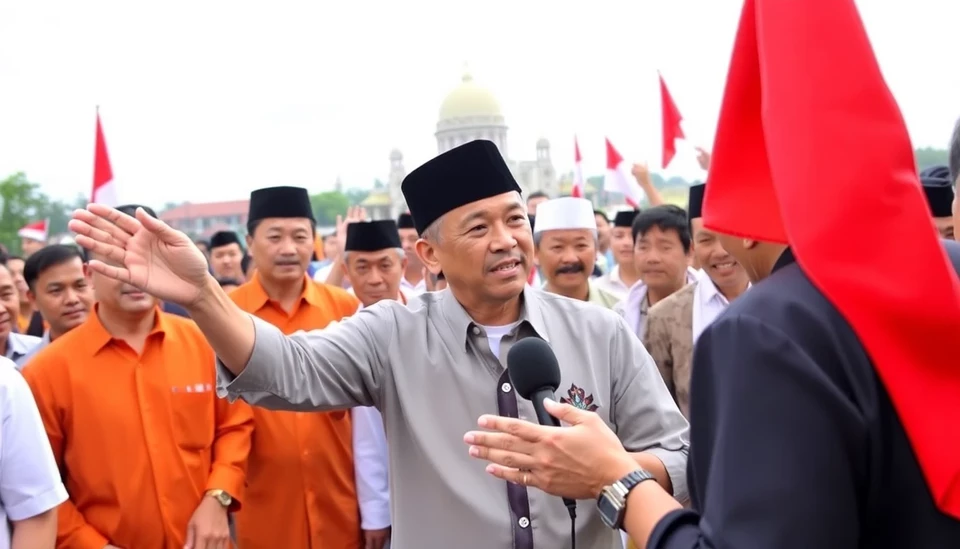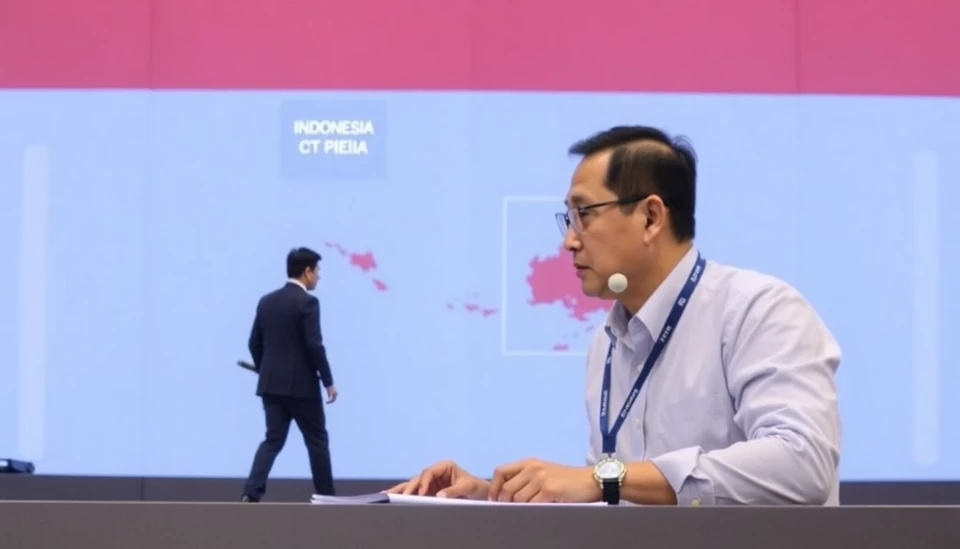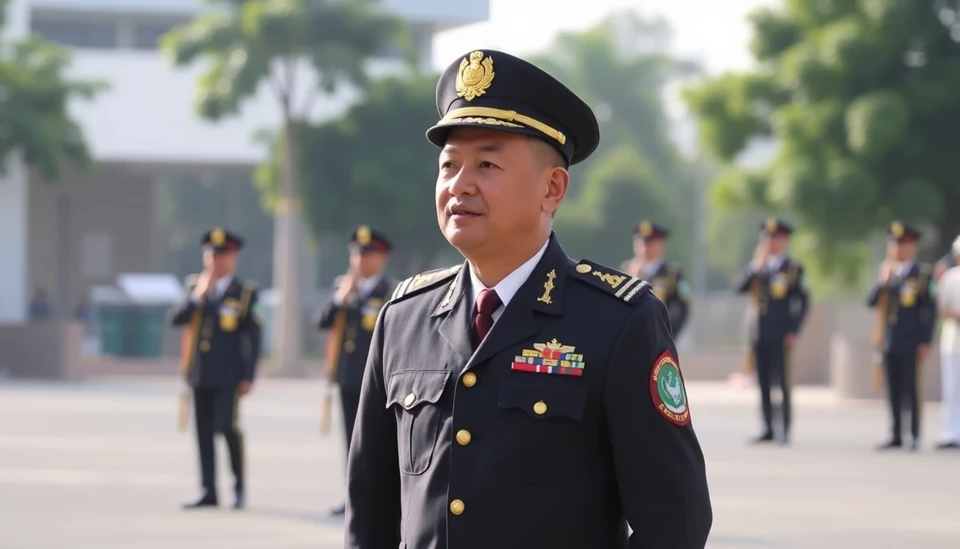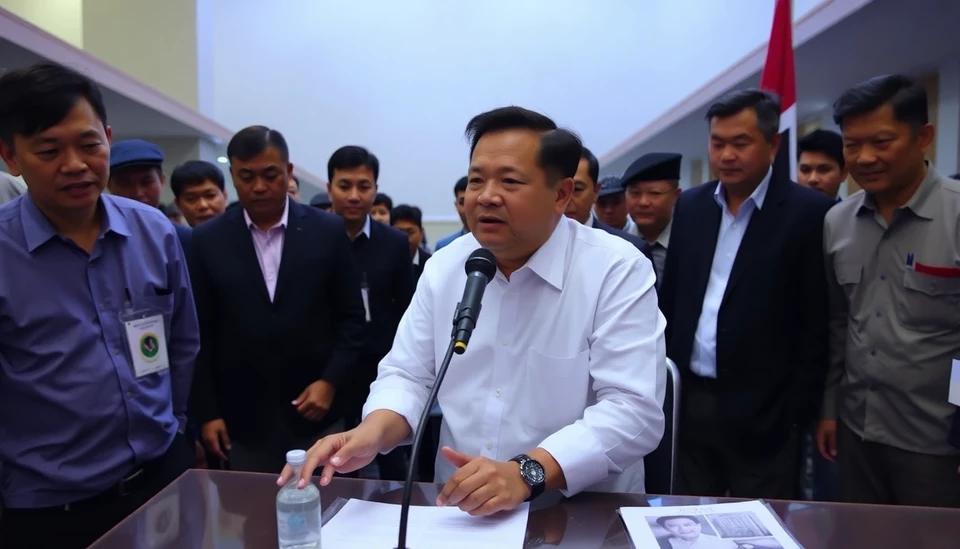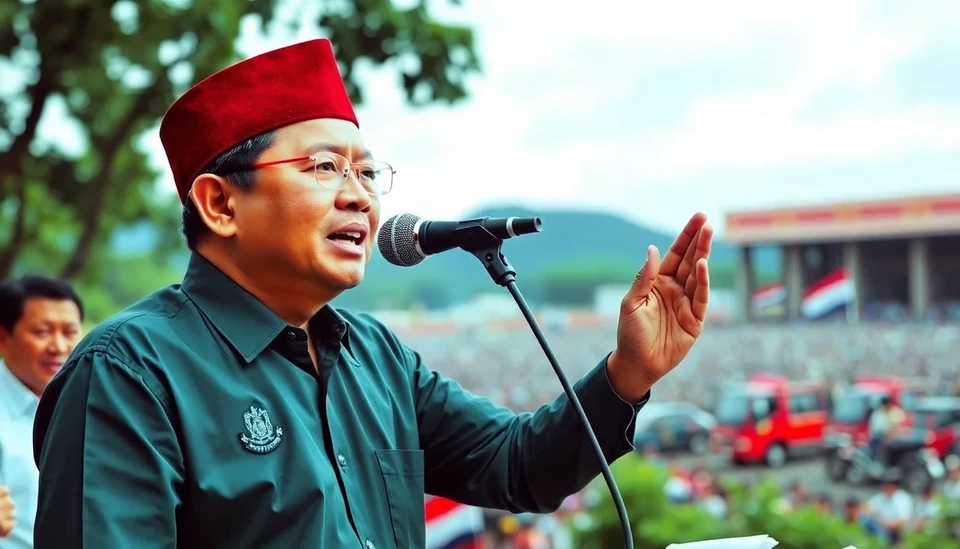
In a country grappling with muted economic growth, Prabowo Subianto, Indonesia's Minister of Defense, is attempting to leverage a populist strategy to engage the electorate ahead of the upcoming presidential election. Indonesia's economy has faced challenges, marked by a sluggish growth rate that has raised concerns about job creation and national prosperity. Subianto, a prominent political figure and former general, is now re-aligning his campaign rhetoric to resonate with the needs and aspirations of the everyday Indonesian citizen.
Recent data indicates that Indonesia's economic growth has struggled to exceed 5% in 2024, prompting worries among voters about the government's ability to address rising costs of living and stagnant wages. As Subianto gears up for the race, he is keen to connect with the electorate by emphasizing programs that promise substantial benefits to the working class and poor communities.
Subianto has laid out a vision for fostering economic development through substantial infrastructure investments, agricultural enhancement, and increased support for small to medium-sized enterprises. He is proposing reforms designed to spur job creation by improving vocational training and access to financing for local businesses, aiming to provide tangible solutions that would empower underprivileged sectors of society.
His populist rhetoric emphasizes direct engagement with marginalized communities, contrasting sharply with his more elite political background. Subianto's campaign is strategically focusing on listening tours, providing him the opportunity to hear firsthand the challenges faced by ordinary Indonesians. These efforts are designed to humanize his image and shift perceptions from that of a military general to a relatable leader committed to the welfare of all citizens.
Moreover, Subianto is addressing economic disparities by promising progressive taxation reforms that would ensure wealthier individuals contribute more towards public welfare initiatives. This approach is particularly resonant among younger voters who are increasingly concerned about inequality and are looking for leadership that reflects their values and aspirations.
The defense minister's strategy is underscored by a recognition that economic narratives resonate strongly with the electorate. In recent speeches, he has invoked national pride and the need for self-sufficiency, framing his policies around enhancing local industries and reducing dependency on international markets. His emphasis on nationalism is a key component of his grassroots appeal as he seeks to galvanize support throughout the archipelago.
As the presidential election draws nearer, Subianto's efforts to energize the electorate with a focus on populism may prove crucial in a landscape where traditional party loyalties are being tested. The challenge remains for him to sustain this momentum and translate popular support into actual votes, as new political movements and candidates emerge, particularly among the youth demographic.
Subianto's approach not only reflects an understanding of current economic challenges but also an awareness of the shifting political dynamics in Indonesia. His adaptability and willingness to engage with pertinent socio-economic issues may well determine his success in the forthcoming election.
In a time when many citizens express frustration over government performance and economic stagnation, Prabowo Subianto's populist card may hold the key to reviving his chances in the race for the presidency and steering the country towards a more prosperous future.
#PrabowoSubianto #IndonesiaElections #Populism #EconomicReform #JobCreation #YouthEngagement #NationalPride
Author: Rachel Greene
